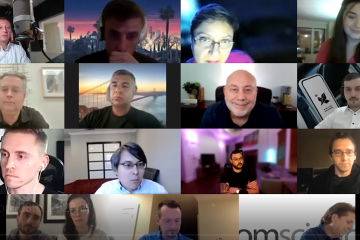Why it is important to understand the limitations of our brains
The human mind, in spite of its evolutionary sophistication, is not without its restrictions. It is privileged with unmatched intellectual capacities, enabling individuals to thrive and prosper.
Nonetheless, even such a complicated organ as the brain has inherent weaknesses. These innate shortfalls can affect our decision-making and problem-solving capabilities.
For individuals navigating the rapidly evolving world of startups, knowledge of these deficiencies might significantly enhance their meta-cognitive abilities. Recognizing the potential for our brain to misdirect our thoughts can be a revelation. Surprisingly, this could shed light on a multitude of project management strategies and software development processes designed to aid startup entrepreneurs.
A deeper understanding of strategies like Lean Startup and Agile, along with their guiding principles, becomes clearer when we grasp the ‘why,’ beyond the ‘what and how.’
Our brains, powerful instruments and a notable advantage from evolution, have propelled human progress to surpass that of all other earth-dwelling species.
Yet, regardless of their superior abilities, our brains are marred by numerous flaws. These imperfections consciously or unconsciously dictate the way we think and solve dilemmas.
So, what’s the relevance of this to entrepreneurs and startup pioneers? My objective is to illuminate some of these brain shortcomings with a goal to enrich our meta-cognitive skills.
My motive is to foster an understanding of how our brains can deceive us. Intriguingly, this notion may help decrypt the abundance of project management and software designing methods available and elucidate why they are designed specifically to aid startup founders.
The rationale behind the development and necessity of these frameworks such as Lean Startup and Agile, becomes more accessible. Understanding the ‘why,’ alongside the ‘what and how,’ I believe, is significantly beneficial.
We are biased
Indeed, each one of us possesses inherent biases. These biases subtly influence our cognition, and if we aren’t mindful of the way our minds process and interpret experiences and information, we risk being ensnared by our own cognitive predispositions.
What could be the consequences of non-existent or unsatisfactory metacognitive abilities? In most cases, this leads to inefficient functioning and financial setbacks, which are familiar outcomes of various ideas and startup initiatives.
So, it’s time now to delve into different types of biases and examine their influence on our startup mindset.
One of the most predominant and widely acknowledged forms of bias is confirmatory bias. This bias reflects our tendency to notice, absorb, memorize, search for, favor, and readily retrieve information that bolsters an existing belief, while concurrently overlooking, modifying, or forgetting facts that challenge that belief.
Have there been instances while you were laying the foundations of your startup, and it felt as if “everything was falling into place” in your favor? Of course, it is well-known that the universe is indifferent to your entrepreneurial aspirations, but you simply started spotting positive signs while neglecting the caution signs to stop.
Without doubt, we have all unknowingly fallen victim to our own confirmation bias. Recognizing the immense challenge, if not total infeasibility, of maintaining impartial thinking about an idea is vital. Hence, we must prioritize hard data and measurements over dependence on “instinct” or personal bias.
Further underscoring this point, let us consider another cognitive bias – the projection bias. Put simply, we tend to use our personal mindset and perceptions as a reference, consequently projecting our own thought process and behavior onto others. This extends beyond mere thinking to wrongly predicting the future based on our current preferences.
Another bias that warrants discussion is consensus bias, known for its potential to haze our judgement. This particular bias implies that we are prone to assume that the majority shares our beliefs and that our views enjoy widespread agreement.
The consensus and projection biases seem interconnected. And arguably so, given that they encompass the tendency to project our thought patterns and assumptions onto a broader audience.
Why do we do this? What makes us blind and susceptive to such ways of thinking.
What pushes us in this direction? What makes us susceptible and easily led by such patterns of thought?
I wish to introduce to you another idea, a daring traverse – the principle of cognitive bias.
While there are a plethora of explanations for cognitive bias in circulation, one of the simplest definitions could state that individuals strive to integrate two clashing ideologies into a consistent one. This struggle is most palpable when a newfound concept contradicts a pre-existing belief. Usually, the prevailing belief holds its place, while the recent concept adapts to align with it.
It becomes clear now that your cognitive biases might influence you to believe others have identical needs and will readily subscribe to your product when you conceive an idea. Moreover, you manage to dismiss any opposing views, convincing yourself that most will support your project – a showcase of consensus bias. Faced with contrasting realities, you continue supporting your beliefs, principally because you aim to reduce the cognitive dissonance caused by these facts. What’s your strategy? By favoring and “randomly encountering” facts that back your idea, demonstrating confirmation bias.
What about our understanding of how good we are at what we can understand
Here is the paraphrased and optimized text: Aspiring to elevate your comprehension of mind trickery, I am eager to walk beside you on this journey of self-discovery. Gaining an in-depth understanding of one’s cognitive pattern is not a piece of cake, but recognizing its boundaries can considerably streamline the process of assessing ideas and determining their feasibility. Ultimately, no one can grasp the ins and outs of your concept better than you—the mastermind behind it.
Or can they?
To ignite your curiosity, let’s explore an interesting psychological bias.
Psychologists David Dunning and Justin Kruger originally proposed a cognitive bias back in 1999, popularly known as the Dunning-Kruger Effect. This could alternatively be tagged as meta-ignorance or the unconsciousness of being unconscious.
The cornerstone of the Dunning-Kruger Effect is the inability of individuals who lack proficiency in a particular domain to recognize their own incompetence. It’s not just about this—these individuals are not only blind towards their inadequacies, but also often exhibit an unwarranted level of confidence in their abilities.
Therefore, an invaluable piece of advice for budding entrepreneurs is to be open to the opinions of others, particularly those who have carved a niche for themselves in your field. Additionally, cultivate a readiness to remodel and evolve based on their guidance.
Ways to mitigate our shortcomings
The positive note is that there are numerous dedicated individuals making conscious efforts to confront these hurdles. Their work centers around developing frameworks and strategies designed to guide us through our inherent biases.
Conducting customer interviews no longer appears like a drain of resources but engrains itself as a logical plan of action as it helps to counter potential projection and consensus biases, enriching your self-discovery journey. These Customer interviews provide insights into the allure of your idea and disclose the projected audience size.
To maintain steady advancement, it’s vital to constantly revisit and reassess your assumptions. This is where Agile methods and Lean Startup methodologies play a significant role in the realm of software development. It encourages iterative development, outcome measurement, data-driven inferences, hypothesis formulation, and cyclic repetition.
It’s all beginning to piece together now, isn’t it?
Conclusion
As we conclude our discourse, it is essential that we regularly validate our conjectures and do it in manageable chunks. The human mind, with its tendency to deceive, could take us for a ride if we are oblivious to the complexities of our thought process and how the brain operates. There’s the risk of misallocating resources by creating something potentially inessential or unattractive.
The brain is indeed a priceless tool, and our creative minds can lead us towards unexplored areas prompting curiosity and wonder. But as with any tool at our disposal, acquiring the know-how to use it competently assures successful achievements.



0 Comments